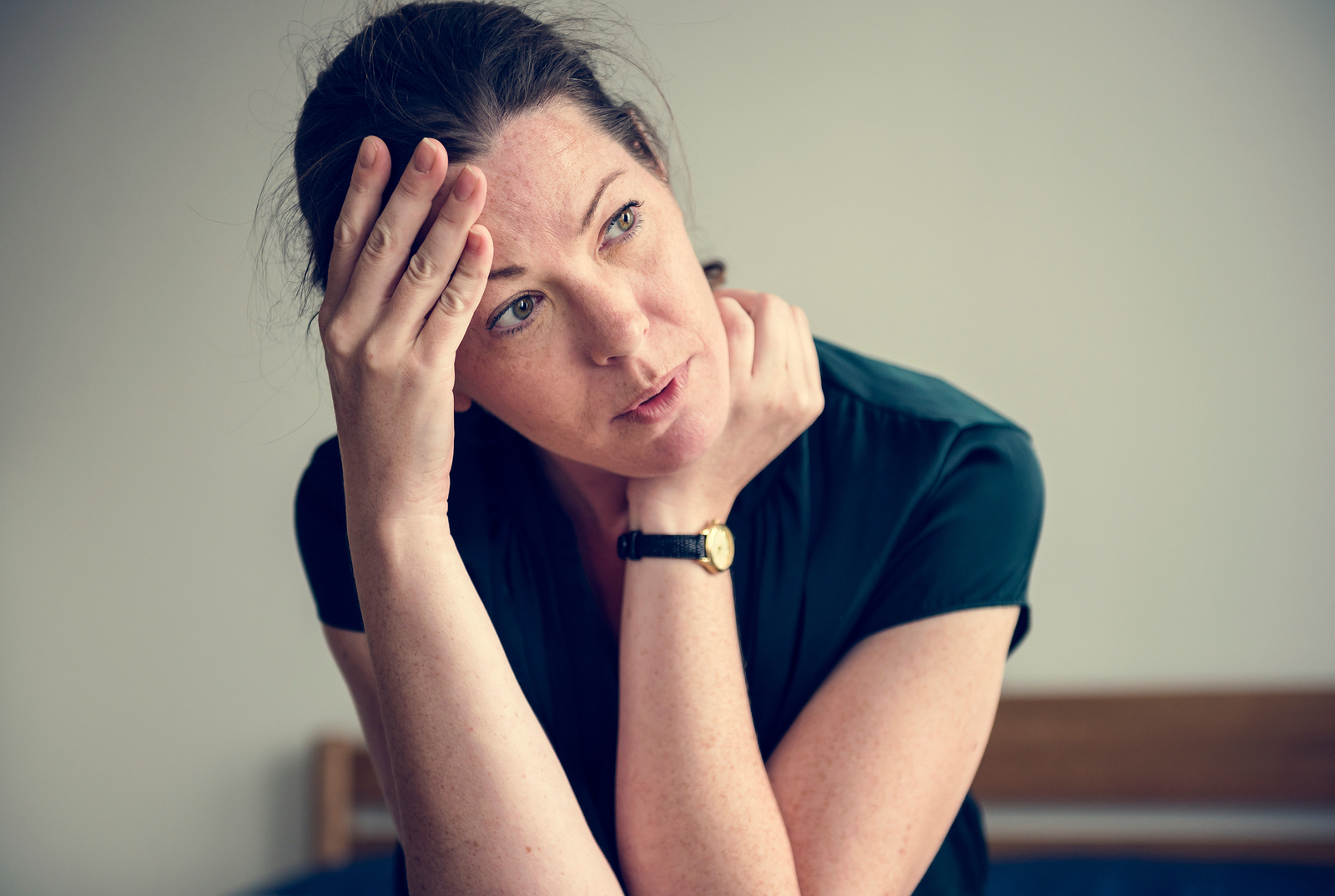Women are starting to really understand what imbalanced hormones can do to their bodies. Patients are coming into my practice with symptoms they recognize as signs of unbalanced hormones. They’re seeking tests to identify specific issues, and refusing to accept that hormonal fluctuations are constant and don’t need to be addressed, which is what they’ve often heard from conventional practitioners..
It’s great that these women are looking for answers, but they need to take it a step further. After recognizing the impact hormonal imbalance can have on their bodies, they need to dig deeper and find out what’s creating the imbalances. And they’re ready to do so!
I’m excited to see so many women trying to take control of their health long term rather than simply looking for a quick fix. They want to know what they can do to shift the balance to a more ideal state — and keep it there!
Often, women come in thinking they know what’s happening, or wondering about common triggers for hormonal imbalance. But one crucial component often still comes as a surprise; the level of stress that you experience in your daily life can have a huge negative impact on your hormonal health.
When I tell women that their stress is affecting their hormones, they sometimes react with despair. “I can’t change the stress in my life, so will I just have to live with the hormonal imbalances forever?” they ask. My answer is a resounding “no!” It’s true that stress is a non-negotiable part of life. The stress response is a built-in survival mechanism, and you can’t turn it off. But there are certainly ways to use it to your advantage – and to cut down on the stress you encounter daily. With that in mind, let’s explore the relationship between stress and hormones in your body.
What Happens When Your Body is Continually Stressed?
There are many types of stress, and your body is well equipped to handle it short term. The problem lies in constant, unrelenting stress. Think of it like this: A branch on a tree can bend and sway with the force of wind, but each time it bends it becomes a little bit weaker. If the wind blows incessantly for days, weeks, or months eventually the branch will snap. That’s what is happening in your body — it bends until it just can’t anymore. Then, if the stress doesn’t let up, your body simply becomes too weak to function properly.
Stress is a reaction to a challenge, threat or barrier. But here’s the rub — your body reacts the same way, physiologically, regardless of the source. Even “good stress” – excitement over a new job, or the challenge of climbing a mountain – prompts a physical reaction in your body. And that physical reaction can cause all kinds of difficulty if your body perceives constant stress.
Does Your Stress Come from Within?
External stress is easy to identify. You can point to the pressures of a job, the difficult task of motherhood, physical pain, or relationship troubles and know that each one has an impact on how you are feeling. But what about internal stress?
Emotional stress is often harder to identify. Things you thought you’d put behind you can be lurking inside, ready to resurface at any moment. Trauma suffered in childhood – like watching a parent be physically abused, being told or feeling like you are not enough,for instance – lives in your body long after the trauma has passed. The stress of being constantly on guard, never knowing what might happen from one moment to the next, can actually change your biochemistry.
Another kind of internal stress is the pressure so many women put on themselves to be perfect. These women never have time for their own passions, they neglect their own needs trying to be the best person they can be for everyone else. In American culture, there’s this idea that “the more you do, the more you are.” Americans seem to be admired more for what they do than who they are in the world. It’s not like this everywhere. In Europe, people are offended if the first thing you ask them is what they do. But here, that’s standard cocktail party small talk. And feeling like you don’t measure up can cause a lot of internal stress that needs to be dealt with.
Let’s take a quick look at what happens inside when your body is constantly under stress and the connection between stress and hormones.
The Connection Between Stress and Hormones
Your body has three major hormones – insulin, cortisol, and adrenaline – that impact all of your other hormones and the messages they deliver to your body systems.
The fight or flight reaction that stress prompts originates in your HPA (hypothalamus-pituitary-adrenal) Axis. This response prompts the production of cortisol, which helps your body determine which functions are most important when it comes to survival. While doing so, it pushes non-essential functions into the background. Essentially, cortisol is telling your body there’s danger ahead, and your body is responding accordingly. But it’s meant to be a short term response. In matters of survival, the threat is often short lived, and when it’s gone, your body can go back to dealing with other, non-essential functions.
But what if your body never understands that the threat has passed? Your HPA axis won’t deactivate, and those other functions never get a turn. That’s when stress begins to have an effect on other hormones, sending them spiraling out of balance. Your body constantly fights to stabilize hormone levels, but if it’s receiving a steady supply of extra cortisol, it’s fighting a losing battle.
Recognizing Stress Related Hormonal Imbalances
You may well have noticed symptoms, and even known they were hormone related – but never connected the dots between stress and your hormonal difficulties. Symptoms that could be stress-related include:
- Depression and anxiety
- High blood pressure
- High blood sugar levels
- Hair and skin changes
- Immune system issues
- Fatigue
- Headaches
- “Fuzzy head”
- Memory difficulties
- Dizziness
- Low libido
- PMS
- Bloating
- Irregular periods
- Amenorrhea
- Infertility
Recognizing how stress may be impacting your life is the first step. But nothing will improve if it’s your only step! You don’t have to shrug and accept these symptoms as an automatic byproduct of stress. Nor do you have to just live with the stress. You have great power when it comes to your own life — it’s time to start owning it!
Let me tell you about my own struggles with stress and hormones. I grew up with immigrant parents. My mother was Dutch and my father was Hungarian. They immigrated to Australia after the war in Europe. Because of many circumstances in Europe and my parents upbringing, and the devastating effects of the war, my parents were both quite walled. My mother in particular did not like women. So I grew up thinking I was never enough in spite of my many academic achievements, including skipping 5th grade. The pressure of this took its toll personally as I tried for years to be more and more perfect. The best grades, the best practitioner, the best Mom, the best, and so on. As you all know this is impossible. This also takes its toll on the body increasing the production of cortisol, which in the long run has many physical effects. It also certainly impacts our hormones, which contributed to my PMS when I was an adolescent. My story is not so different from many of my patients. The question is what are you willing to change, especially with respect to your response to the stress from the earlier years as well as the present day stressors.
7 Stress Management Tips to Get You Started
Now that you know the effects of stress on your hormones, I hope you are motivated to do something about it. I know it can be difficult to climb off the merry-go-round stress cycle, especially if you’ve been on it for years. Here are some ideas to help you head in the right direction, instead of spinning in circles forever:
Avoid Sugar and Carbohydrates
Insulin is a key player in regulating hormones, and loading up on carbohydrates and sugar is the one of the quickest ways to throw your balance off. During stressful times, it’s easy to grab whatever is nearby to eat, so take the time to prepare healthy options – especially if you won’t be able to leave your office all day. Keep nuts in your desk drawer instead of a candy bar, and pack a healthy lunch that includes protein so you won’t be tempted by the nearest take out restaurant or food truck.
Address Emotional Issues
This vital step is often the most difficult. We’ve been trained to stuff our emotions down and push through the difficult times, but all that does is hold on to the stress indefinitely. You have to face difficult feelings – guilt, anger, and regret – in order to let them go. We all have things we wish we’d done differently, but you can’t go back in time. Remember that you did the best you could with what you had to work with. Today is all that matters: yesterday is gone, and no one knows what tomorrow will bring. Take the time to understand your personal STORY and enjoy the good health that can result when old emotions aren’t holding you hostage any longer. As I said, this can be extremely tough, so you may need to seek out professional assistance. There is no shame in asking for help.
Commune with Nature
Spending time outside is one of the best ways to reduce stress. Spending time in the sunshine will boost your Vitamin D, an essential vitamin that so many women don’t get enough of. Increased levels of vitamin D improves muscle function, immune system and mood. Study after study has shown clear benefits to spending time in the natural world, including an increased ability to focus, reduced symptoms of anxiety and depression, and lower stress levels. The scents of nature, including many flowers and pine, have been shown to decrease stress, anxiety and depression. Walking barefoot in the grass can boost immunity, blood flow and other body functions. Being at the ocean or in a forest can also remind you how big the world is, and help you clear your mind and appreciate the beauty around you.
Gentle Exercise
If you’re already pressed for time, a new intense workout regime isn’t going to calm you down. Trying to force yourself to do something you hate, or squeeze one more thing into an already jam packed schedule is likely to increase your stress levels, not lower them. But physical activity is important for stress reduction, and you don’t have to do a lot to reap the benefits. Slow yourself down by practicing five to ten minutes of yoga or tai chi when you first get up, or just before bed. You might find you enjoy it so much you want to do more.
Self Care
You have to find time for yourself if you want to feel less stress. Whatever that looks like for you – an hour to read a book, a long soak in a warm bath, a phone call with a friend – make it a priority. This is so hard for women to understand, but self care is non-negotiable. We’ve all heard the airline safety speech about putting on your own oxygen mask first; it applies everywhere. You simply can’t continue to support everyone around you if you aren’t offering yourself the same support. I’m not suggesting that you stop caring about the needs of others — but you have needs too. It’s essential that you recognize them, and realize you deserve to have those needs met just as much as anyone else does!
Find an Activity That Clears Your Mind
Worrisome thoughts can take over your life. And constantly thinking about something – particularly when there’s nothing you can do about it at the moment – can keep you in a high-stress state. These thoughts can even keep you awake at night, and lack of sleep can intensify the effects of constant stress on your body. That’s why I think it’s critical for everyone to find something that pushes all other thoughts away. For me, that’s dancing. When I’m dancing, I’m so focused on the connection with my partner and the steps that I can’t be worrying about anything else. If you can break the pattern of negative thoughts, you might just find that even when you are finished with the activity, the sense of well being you gained lingers.
Breathe
Sure, you’re breathing all the time, but are you doing it correctly? Shallow chest breathing can increase tension, making you feel anxious and short of breath. But so many women breathe this way all the time! It’s best to breathe deeply, from your belly, as often as possible. Deep breathing allows your body to fully exchange the oxygen coming in for carbon dioxide being released. There are lots of techniques to help you learn to breathe properly. I like the 7-7-7 technique: breathe in through your nose for seven counts, hold for seven counts, and breathe out slowly through your mouth for seven counts.









